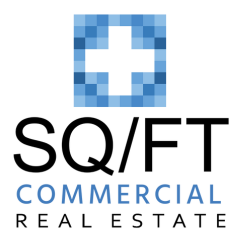
In the ever-evolving healthcare landscape of New York, New Jersey, and Connecticut, landlords and sellers of medical buildings face a unique set of challenges and opportunities. From navigating complex regulations to attracting the right tenants or buyers, the process of listing and selling healthcare properties requires specialized knowledge and expertise. In this blog post, we’ll explore why employing a healthcare-specific broker is essential for landlords and sellers looking to maximize the value of their healthcare and medical buildings in these dynamic markets.
- 1.Understanding Healthcare Regulations and Compliance**: Healthcare facilities are subject to a myriad of regulations and compliance requirements at the federal, state, and local levels. From zoning laws to building codes and healthcare-specific regulations, ensuring compliance is paramount for landlords and sellers. A healthcare-specific broker possesses in-depth knowledge of these regulations and can navigate them effectively, minimizing regulatory risks and ensuring a smooth transaction process.
- 2. Targeted Marketing to Healthcare Professionals**: Unlike traditional commercial properties, healthcare and medical buildings cater to a specialized audience of healthcare professionals and organizations. To effectively market these properties, landlords and sellers need to reach healthcare professionals who are actively seeking suitable spaces for their practices. A healthcare-specific broker has an extensive network within the healthcare industry and can leverage targeted marketing strategies to connect with potential tenants or buyers, maximizing exposure and generating qualified leads.
- 3. Understanding Tenant and Buyer Needs**: Healthcare facilities have unique requirements that differentiate them from other commercial properties. From specialized infrastructure for medical equipment to amenities tailored to patient comfort, the needs of healthcare tenants and buyers are diverse and specific. A healthcare-specific broker understands these nuances and can identify properties that align with the needs and preferences of healthcare professionals, enhancing the attractiveness of listings and expediting the leasing or sales process.
- 4.Negotiating Favorable Terms and Conditions**: Negotiating lease agreements or purchase contracts for healthcare properties requires a deep understanding of industry standards and best practices. A healthcare-specific broker possesses specialized negotiation skills honed through years of experience in the healthcare real estate sector. They can advocate on behalf of landlords and sellers to secure favorable terms and conditions, maximizing returns and mitigating risks associated with leasing or selling healthcare properties.
- 5. Navigating Market Dynamics and Trends**: The healthcare real estate market in New York, New Jersey, and Connecticut is dynamic, with trends and market conditions constantly evolving. A healthcare-specific broker has their finger on the pulse of the market and can provide valuable insights into current trends, emerging opportunities, and competitive dynamics. By staying abreast of market developments, landlords and sellers can make informed decisions that optimize the value of their healthcare properties.
In conclusion, the decision to employ a healthcare-specific broker is a strategic investment for landlords and sellers of healthcare and medical buildings in the NY, NJ, and CT markets. By leveraging their specialized knowledge, targeted marketing expertise, and industry connections, landlords and sellers can maximize the value of their properties and achieve successful outcomes in an increasingly competitive market. Whether leasing or selling healthcare properties, partnering with a healthcare-specific broker is the key to unlocking success and realizing the full potential of healthcare real estate investments.
